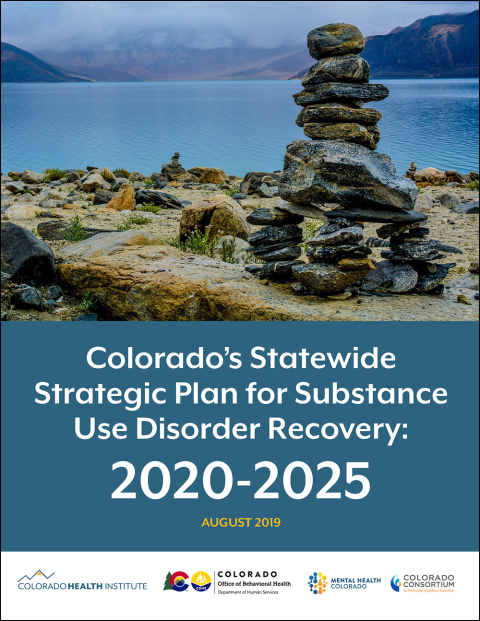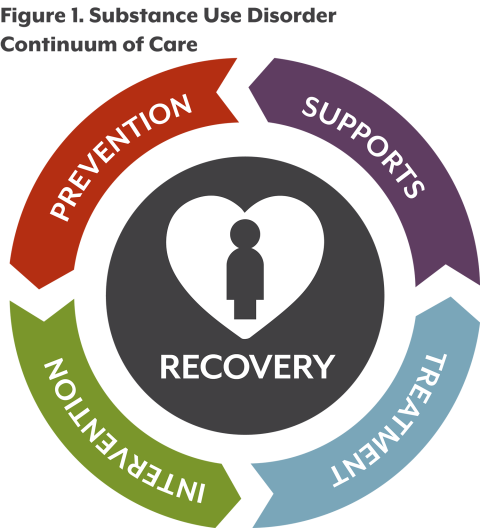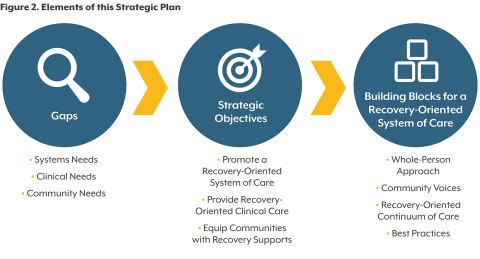The story of recovery is not told in the past tense. It’s a story that unfolds in the present, with a hope-filled vision of the future.
And now, Colorado has a strategic plan to reorient systems, clinical care, and communities to promote recovery. Recovery is a process of change through which people improve their health and wellness, live self-directed lives, and strive to reach their full potential.
The plan makes clear that recovery happens in communities. Clinical treatment can provide a bridge to recovery, but an individual’s recovery is supported by safe and stable housing, having a meaningful work or another daily activity, and good mental health and physical well-being.
The Recovery Advisory Committee – with input from hundreds of recovery experts, people in recovery and other communities’ members statewide – outlined a vision for Colorado’s future recovery-oriented system of care. The four critical building blocks include:
- Whole-person approach to recovery
- Integrating community voices
- A recovery-oriented system of care
- Best practices for promoting recovery
A recovery-oriented system of care is a circle with recovery at the center and recovery services integrated in to every component of care.
Recovery-Oriented Prevention: Prevention approaches create environments and systems where people can be healthy. These systems are important for people at all stages, and recovery-oriented prevention specifically helps create healthy spaces for those in recovery.
Recovery-Oriented Intervention: Efforts can take place in many settings (home, work, or school) by friends, family, health providers, and community members. These interventions optimally align with patient-centered goals.
Recovery-Oriented Treatment: Recovery-oriented treatment is clinical services that focus on linking all measures of success to long-term recovery outcomes, and empower people to choose their own path to recovery.
Recovery Support Services: Support programs are often staffed by people with shared experiences of substance use recovery. Programs include one-to-one support, group support, and substance free social activities.
Building the Plan
The Recovery Advisory Committee engaged nearly 400 Coloradans with lived experience of recovery and their allies to develop the plan.
- Conducted an environmental scan and review of best practices.
- Hosted three community listening sessions and seven key informant interviews.
- Surveyed 335 people from 40 counties in recovery, their families and statewide providers.
- Established and facilitated a Recovery Advisory Committee of people with lived experience.
- Identified and prioritized three strategic objectives and 11 strategies.
Colorado’s Statewide Strategic Plan for Substance Use Disorder Recovery
STRATEGIC OBJECTIVE ONE: Create a Recovery-Oriented System of Care.
Colorado has a foundation to provide and sustain recovery support services.
- Create sustained targeted funding opportunities to support existing recovery support services or develop new services.
- Equip funders to use language that is inclusive of recovery.
- Implement systematic data collection to assess and monitor recovery.
- Promote recovery as a priority issue in behavioral health discussions.
STRATEGIC OBJECTIVE TWO: Provide Recovery-Oriented Clinical Care.
Colorado’s healthcare providers identify recovery as a goal for patients, and connect patients to recovery support services.
- Equip the entire health care system — from primary care community providers to acute care hospitals — to support people in recovery.
- Expand access to medication-assisted recovery.
- Equip substance use treatment providers to connect people in recovery to supports as part of their treatment or service plans.
STRATEGIC OBJECTIVE THREE: Equip Communities with Recovery Support.
Colorado’s community leaders establish and promote recovery-inclusive community supports.
- Enable community leaders to develop and connect people to recovery support services.
- Strengthen communities by increasing access to recovery residences statewide.
- Build community by increasing access to peer-run and peer-delivered services.
- Engage law enforcement and criminal justice to discuss opportunities for providing recovery support services to people involved in the justice system.




